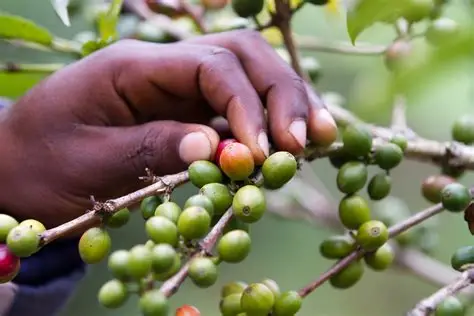Kenya’s Coffee Culture: From Bean to Cup in the Highlands
Kenya is renowned worldwide for its high-quality coffee, and the story behind each cup is as rich as its flavor. From the misty highlands where coffee plants thrive to the passionate farmers who cultivate them, Kenya’s coffee culture is a journey that connects land, people, and tradition. In this article, we will explore how this vibrant coffee heritage unfolds from bean to cup.
1. The Origins of Coffee in Kenya
Coffee was introduced to Kenya in the late 19th century by missionaries. Over time, it gradually became a vital part of the country’s economy and culture. Today, Kenya is known for its Arabica beans, which are prized for their bright acidity, fruity notes, and full-bodied flavor.
Moreover, the Kenyan highlands, with their fertile volcanic soil and high altitudes, provide ideal conditions for coffee cultivation. As a result, Kenyan coffee has developed a signature taste that is celebrated globally.
🌿 Key Insight: Kenyan coffee is not just a drink it’s a reflection of the land, climate, and generations of dedication.
2. Life in the Highlands: Where Coffee Thrives
The coffee-growing regions of Kenya are mainly located in the Central and Rift Valley highlands, including areas such as Nyeri, Kiambu, and Kirinyaga. In addition, these regions sit at altitudes of 1,500–2,100 meters, where cool temperatures and ample rainfall create the perfect environment for Arabica coffee.
Farmers carefully tend to each coffee tree, often hand-picking cherries at peak ripeness. Consequently, only the best beans make it to processing.
🔥 Life Lesson: The care and patience involved in coffee farming remind us that quality and excellence come from consistent attention and hard work.
3. From Bean to Cup: The Journey
The journey of Kenyan coffee from farm to cup involves several key steps:
-
Harvesting: Coffee cherries are hand-picked to ensure ripeness.
-
Processing: Most Kenyan coffee undergoes the wet (washed) process, which preserves acidity and flavor complexity.
-
Drying: Beans are sun-dried on patios or raised beds.
-
Sorting & Grading: Beans are carefully sorted by size, density, and defects to maintain quality.
-
Roasting & Brewing: Roasters bring out the unique flavor profiles, from bright citrus notes to rich chocolate undertones.
Therefore, every cup of Kenyan coffee is a product of careful cultivation, tradition, and precision. In other words, it represents the harmony between nature and human expertise.
4. Coffee Culture: More Than a Drink
In Kenya, coffee is more than a commodity it’s a social ritual. Families, neighbors, and friends often gather over a cup of freshly brewed coffee, sharing stories and fostering community. Furthermore, in towns and cities like Nairobi and Thika, specialty coffee shops have emerged, blending traditional flavors with modern brewing techniques.
The culture extends to coffee tourism, where visitors can explore farms, participate in tasting sessions, and learn firsthand about sustainable practices. For instance, many tourists enjoy walking through the highland farms to see the coffee plants, taste the cherries, and experience the process themselves.
🌍 Cultural Insight: Coffee connects people to each other and to the land that nurtures it.
5. Sustainability and the Future of Kenyan Coffee
Sustainability is central to Kenya’s coffee industry. Many small-scale farmers belong to cooperatives, which provide training on eco-friendly farming practices, financial support, and access to international markets. Additionally, shade-grown coffee, organic practices, and water conservation initiatives ensure that Kenya’s coffee culture thrives responsibly.
As a result, supporting these farmers allows consumers to contribute to the preservation of Kenya’s natural landscapes and the livelihoods of communities that have cultivated coffee for generations.
6. Tasting the Highlands: What Makes Kenyan Coffee Unique
Kenyan coffee is famous for its bright acidity, full body, and complex flavor notes often described as berry-like, citrusy, or winey. Because of these characteristics, it stands out in specialty coffee markets worldwide.
Every sip is a journey back to the rolling highlands, the sun-drenched farms, and the hands that nurtured each cherry to perfection. In essence, drinking Kenyan coffee is like savoring a story told through flavor.
Conclusion: A Cup of Culture and Heritage
In the end, Kenya’s coffee culture is a story of passion, resilience, and deep connection to the land. Ultimately, it reflects the dedication of generations of farmers and the richness of the highlands. Therefore, exploring Kenyan coffee is more than a culinary adventure it’s an immersion into the traditions, landscapes, and people that make this African nation a world-class coffee destination.


